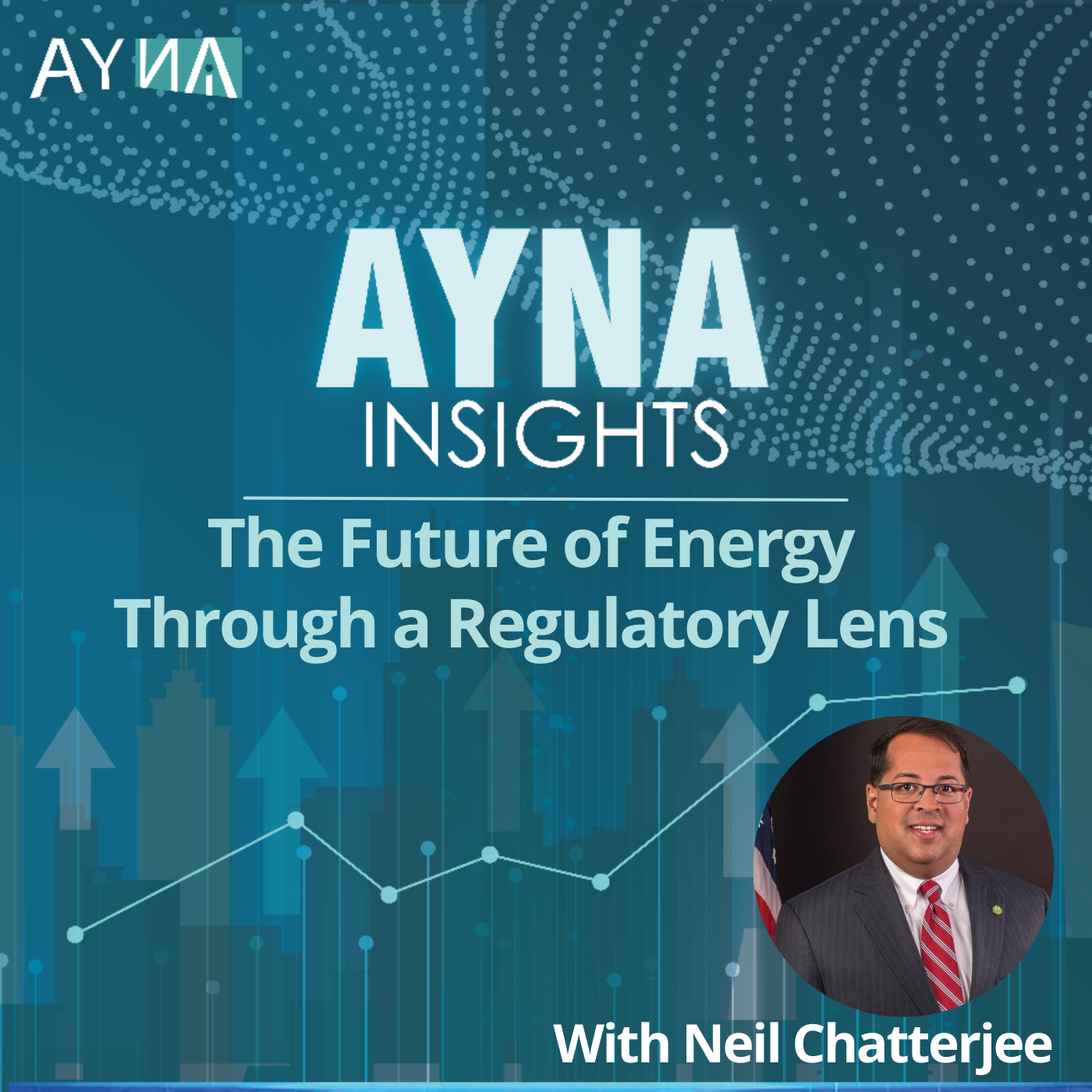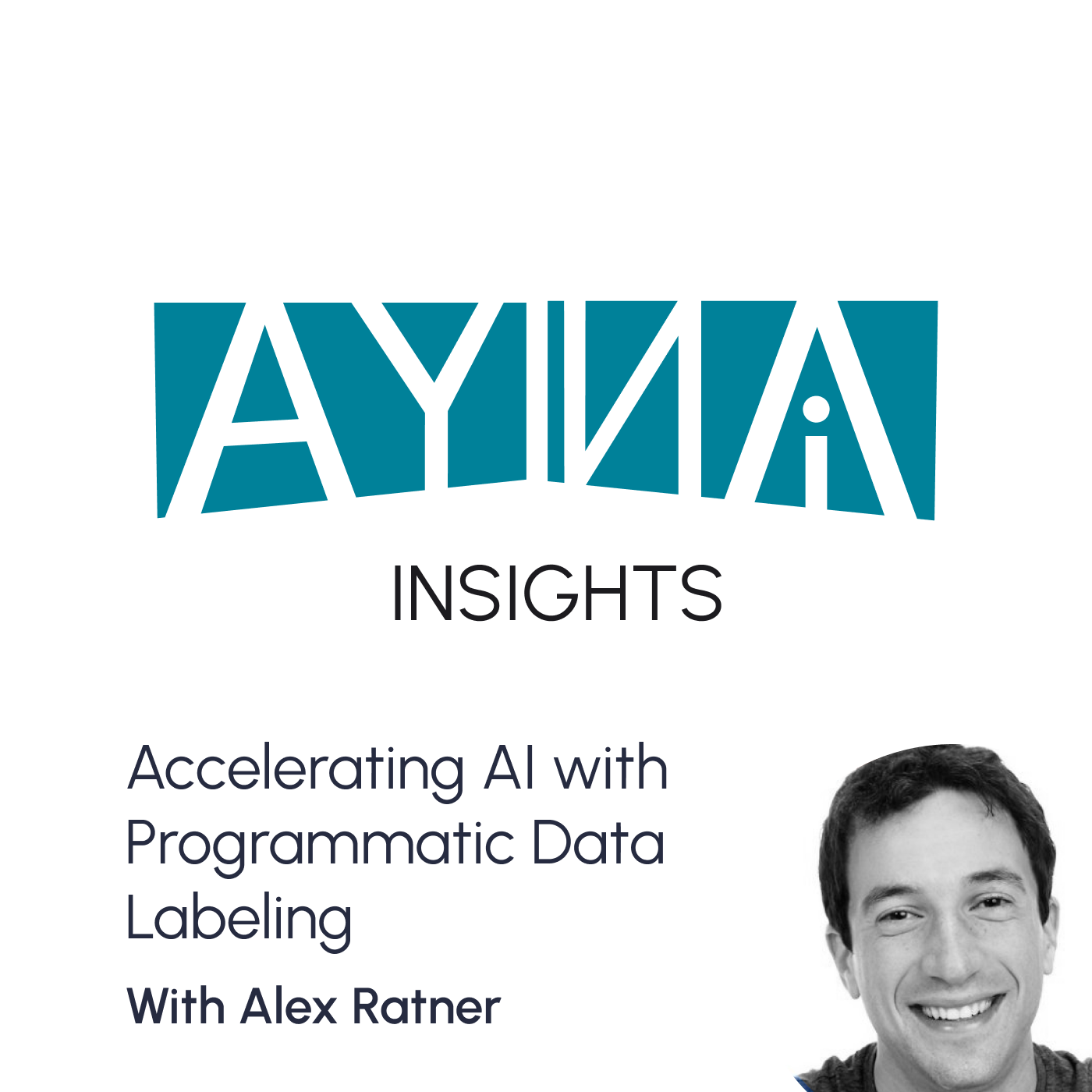Episode Transcript
[00:00:03] Speaker A: Welcome to AINA Insights, where prominent leaders and influencers shaping the industrial and industrial technology sector discuss topics that are critical for executives, boards and investors. INA Insights is brought to you by INA AI, a firm focused on working with industrial companies to make them unrivaled segment of ONE leaders. To learn more about INA AI, please visit our website at www.ina.AI.
[00:00:40] Speaker B: Hi everyone. Welcome to another episode of our podcast series hosted by AINA AI. Today we have the pleasure of having Dawn Weatherby, who is the CEO of Regenics Tech Corp. A company focused on innovative solutions for recycling precious materials. Regenx uses proprietary technology to recover materials like platinum and palladium from catalytic converters and e waste, promoting sustainability and reducing the environmental impact of mining.
Don has extensive experience in leading complex operations in mining and construction. He is skilled at ensuring efficient operations, meeting customer expectations and analyzing critical business needs. Dawn, a very warm welcome to our podcast. We are very excited to have you here today with us and eager to hear your insights on how Regenx is driving innovation in precious metal recovery and sustainable advancement.
[00:01:42] Speaker C: I'm really happy to be here.
[00:01:44] Speaker B: Perfect. So Don, let's get started with you telling us a little bit more about what Regenics does.
[00:01:53] Speaker C: Sure. So what we do is we are, like you said, we are recycling platinum and palladium mainly from diesel silicon carbide based catalytic converters. And what we do is, is that we use a hydrometallurgic sort of a leaching, chemical leaching process to, to extract the precious metals from the materials.
[00:02:23] Speaker B: Got it, Got it. And what makes this process unique where you are recovering these precious materials like platinum and palladium?
[00:02:34] Speaker C: Sure. So the dominant way most catalytic converters are recycled currently is through smelting, is through putting it through a big furnace blast furnace, melting it all down, separating it out, through that. So what we've done is instead of having to use all that energy and all the off extra contaminants up into the air, we're using a closed loop sort of recycled leaching process that, that's eco friendly and doesn't, doesn't have any sort of, you know, contaminants that hit the air. Air.
[00:03:13] Speaker B: Got it. Got it. And so you're in this recycled precious metals industry. Right. How do you see it evolving more so from a demand perspective? And how is Regenx planning to address this demand going forward?
[00:03:30] Speaker C: Sure. So there's two trends that are happening that are coming into play here. One is that the regulations have driven the demand for increased catalytic converters. Catal Converse has been around for quite a while. And mainly it started with gasoline engines and high sort of on highway type vehicles. Your, your. Your normal. Your normal automotive baseline, your normal car that everybody has. Regulations have increased so that it comes to a broader section of the marketplace. Diesel engines. So first in the large trucks that are on the highway, then it was trucking that's off the highway. What we call the sort of the yellow iron, you know, your construction type things. And also anything stationary generators, diesel, marine, all those things started to require to have catalytic converters. So the demand for catalytic converters has been increasing over the last decade. And so that has driven part of it that also drove. That drives the amount available for us to recycle is a growing market there.
On the flip side is that the challenge is this potential for vehicle electrification. So that's going to reduce the demand for catalytic converters as an electric vehicle doesn't need them. But at the same time, these same precious metals are required in the fuel cell construction. So that demand is increasing substantially. So where there's good, there's a. There's a shift in demand which is going to. Is all. And that demand is increasing which is going to make it so that the current mining, current output which is already under pressure. So between platinum and palladium over the last eight years, there are about 259,000 ounces undersupplied as an average.
So that it's already under pressure that the demand can't be reached. And that should be increasing as fuel cells start requiring more and more of the same precious metal. So there is a piece in here that, that to meet the future requirements, additional sources of capturing the.
The precious metals is required. And this is where we come in. And that's because the. Like I said, the dominant one is smelters. Well, a smelter is a large piece that can't just be added to easily. There's regulations, there's not my backyard, all those types of factors. So alternative sources of recycling are going to be required to meet the demand that's current and in the future.
[00:06:26] Speaker B: Understood. And that's very interesting, Don, because you're trying to capture all of these demands through this new way of extracting or recycling precious metals. And at the same time, you also want to do it in an environmentally responsible way. Right. So how are you making sure that there's a balance between trying to scale up your operations while ensuring you continue to stay on track of your environmental goals as well?
[00:06:55] Speaker C: So that's where the nice piece of us is that we have a very small footprint and even as we scaling up, we're not adding anything more to the environment. We, because of what we do, how, how it's all thrown through is that even as we do more, there isn't a bigger and bigger footprint. Especially when you compare it to mining more or smelting. Just as a, as an offhand statistic is, for every ton of material processed through a smelter, they release 1500 kilograms of CO2 and our CO2 footprint is negligible.
[00:07:40] Speaker B: Got it, got it. Okay, that's wonderful. So Don, I also want to understand from you a little bit more around like what's your biggest learning been and learning experience being as a CEO of, of such a tech driven company?
[00:07:59] Speaker C: So the biggest piece that we have is as a, as doing something new, doing something the first time being at the forefront of the market is that development doesn't happen on a straight line, is that you have successes, you have successes, you have successes, then you have to step back because something unexpected happens and how even things on a small scale can't be replicated in the big scale. And, and every time you change the scope, new issues arise that, that you couldn't anticipate.
The one example I like to give is pumping, is that you know, on a small scale, on a lab scale, moving material between things is never an issue because you can never scale down your pumps small enough to be appropriate. And so you're always brute forcing something through. But as you go to scale, your pumps don't have the same capacity. And even so, you have to understand how it's going to move from pieces. And so when we were building this, what we say is we've been working on two different types of problems. We've had to build on the chemistry problem, but we also had to build on the mechanical.
And the chemistry was actually fairly the easier side. It's the mechanical side to get things to work at scale that is the biggest challenge.
[00:09:31] Speaker B: Got it, got it. And speaking of that, Don, what are some of the other tech advancements you see shaping the future of the recycling and the precious metals industries?
[00:09:45] Speaker C: Well, the biggest piece on for us is logistics.
Is that logistics drive how efficient you can be. And then most times in the recycling industry, it's all a logistics piece because once you get the pieces, you know what to do and you can get it done fairly simply.
But it's understanding how to collect, how to move, how to get these things to the right places. It's a, it's a logistics issue. That is the Biggest driver in, in being successful.
[00:10:26] Speaker B: Got it, Got it. And Don, keeping that in perspective, the logistics issue, what do you think is the next major breakthrough going to be in this space?
[00:10:37] Speaker C: Well, there's going. We don't think there's going to be a lot more because what we've built around is, is a lot of known stuff from, from a long history of how to do, how to separate metals from different pieces. That's a historically been a very analyzed piece is always trying to separate out metals. It's how you do it mechanically and how we view it efficiently and how we integrate the different piece sections of our, our process that we look to see our efficiencies. We're also always looking at whether or not there's tweaks to chemistry, tweaks to process, how we can be innovative in how we process the material to be more efficient.
So the biggest move forward efficiency is where we're looking.
[00:11:31] Speaker B: And as you're doing that, how important do you think collaborating with some of the other tech companies or sectors is in driving innovation in this space for Regenix?
[00:11:44] Speaker C: Well, we, we're not collaborating that much with the other tech sectors per se. What we're collaborating with is, is some of the legacy industries like the smelting and the manufacturers. And with the manufacturers it's all about becoming closed loop circular economy of how to move the product they produce out into the market, recollect it from the market, disassemble it, get back to the raw materials, the precious metals and provide it to them so that they can remanufacture. And so that circular economy is the biggest piece of how we're working with our industry partners to make it more efficient and it rolls back into logistics and all those pieces is how we close that loop.
[00:12:36] Speaker B: Understood. And so to close this Don, so in the future, what kind of like innovations or expansions can we expect from Regenx?
[00:12:47] Speaker C: So we're, we've opened up our module one. Our plans are to expand that, to add capacity and then look at alternative locations. We're right now we're, we're focused in on the eastern seaboard of the United States. We would look towards the western United States and then look sort of globally on opportunities to partner with the, with other, with other groups in, in other countries.
[00:13:16] Speaker B: That sounds great, Don. And thank you so much for, for being with us today and sharing the story of regenics and what lies ahead. Thank you.
[00:13:25] Speaker C: Thank you.
[00:13:31] Speaker A: Thanks for listening to INA Insights. Please visit INA AI for more podcasts, publications and events on developments shaping the industrial and industrial technology sector.
[00:13:49] Speaker D: SA.


